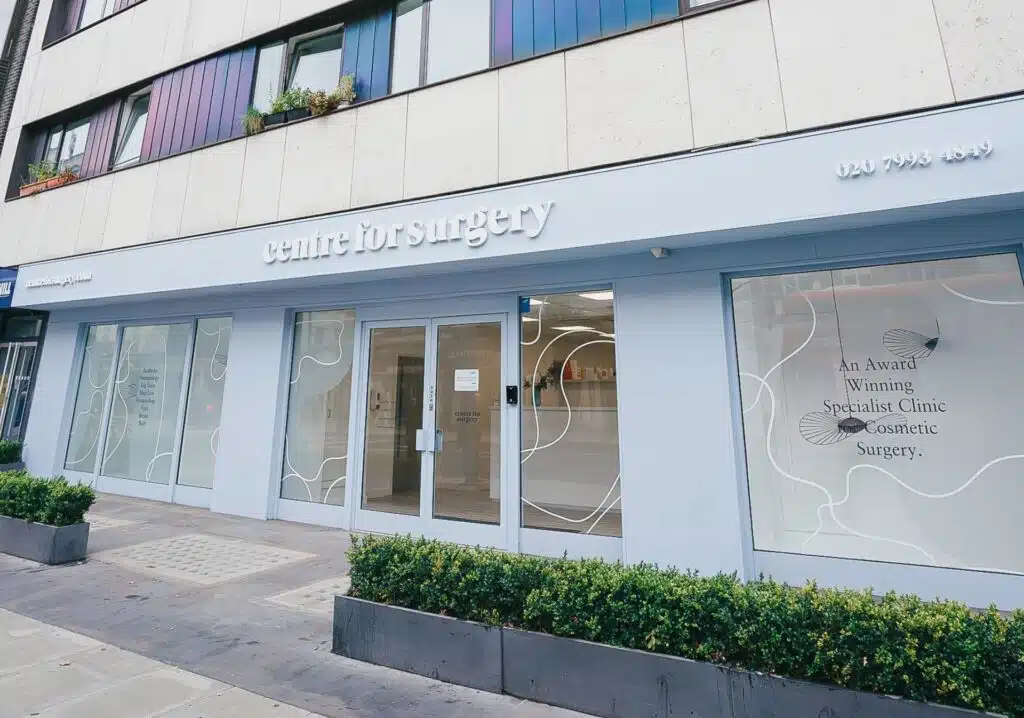Many people often ask us at Centre for Surgery in London about the importance of weight when considering a Brazilian butt lift (BBL). Specifically, they want to know if there’s an ‘ideal’ weight to be at for this procedure. Questions like, “Can you be too skinny for a BBL?” or “Will losing weight after the surgery affect the results?” are frequently brought up.
These questions are fundamental and we’re keen to help you understand the factors involved. Firstly, it’s worth noting that there’s no one ‘right’ or ‘ideal’ weight for a Brazilian butt lift. The key factor that plays a significant role in a BBL is, of course, the availability of fat. You do need a certain amount of fat for the procedure to be effective; however, it’s also important not to have an excessive amount of fat. Contrary to popular belief, having too much fat can also be problematic for achieving optimal BBL results.
So, while weight is a consideration, it’s not the only factor to think about. What’s more crucial is the availability and quality of the fat that can be used for the procedure.
RELATED: 9 Essential Questions To Consider When Choosing Your Brazilian Butt Lift Surgeon
Do You Need to Gain Weight for a Successful Brazilian Butt Lift?
The question, “Do I need to gain weight to have a Brazilian Butt Lift (BBL)?” is one we often encounter at our clinic. Understanding how a BBL works can help clarify this query. The procedure involves extracting fat from certain body parts — such as the abdomen, thighs, arms or back — through liposuction. This extracted fat is then carefully and strategically injected into your buttocks to achieve a fuller, more sculpted appearance.
RELATED: Brazilian Butt Lift FAQs – Q&A about BBL Surgery
The availability of enough fat to extract is a crucial element for the success of this procedure. If you don’t have sufficient fat stores, achieving significant results that would make the surgery worthwhile becomes challenging. Therefore, for individuals who are on the thinner side, gaining some extra weight may be advisable. This enables us to have a larger amount of fat to work with, which helps achieve more noticeable and satisfying results.
If you’re very thin and lacking in these essential fat deposits, our medical team may recommend a weight-gain plan that spans over a period of weeks or months. After gaining the necessary weight, you would then come back for a re-evaluation to see if you are now a suitable candidate for the BBL procedure.
It’s worth mentioning that if we do recommend weight gain, it’s often because you are most likely underweight according to Body Mass Index (BMI) standards. The average recommended BMI for most people considering plastic surgery is usually between 18.5 and 25. If your BMI falls within this range and you’re at what is considered a ‘normal’ weight, it’s likely you’ll have sufficient fat in other areas of your body that can be harvested for the procedure.
A widespread misconception exists that being heavier is better when it comes to a BBL. This is not necessarily true. While having more fat can provide more material to work with, it doesn’t automatically make you a better candidate for a BBL. Excessive fat may also bring along other medical complications that could make the procedure riskier.
Can You Have Too Much Fat for a Brazilian Butt Lift?
The question of whether it’s possible to have too much fat for a Brazilian Butt Lift (BBL) is an interesting one, and it’s essential to understand the guidelines we follow for any surgical procedure. Generally speaking, we strongly recommend that you be at a healthy and stable weight before undergoing a BBL or any other type of surgery. If you are in the midst of a weight loss journey, we ask that you come within 10 pounds of your target weight, and that your Body Mass Index (BMI) be below 30.
We have these requirements in place for several key reasons. One primary consideration is ensuring that the surgical procedure is as safe as possible. Essentially, the healthier and more stable your weight, the lower the risks associated with surgery. A stable weight allows us to gauge more accurately the amount and quality of fat that can be harvested, thereby helping us deliver the best possible outcome for you.
For a BBL, an additional reason for being at a healthy weight is crucial: the quality of the fat cells that will be harvested. The BBL procedure involves extracting fat from certain parts of your body to be injected into the buttocks. To do this successfully, we need good quality fat cells. Interestingly, the size of your fat cells matters in this context. If you’re overweight, your fat cells can enlarge, making them less ideal for a BBL procedure. Smaller, healthier fat cells are generally more suitable for fat grafting, as they are more likely to survive the transplant process.
How Do Weight Fluctuations Impact the Results of a Brazilian Butt Lift?
Whether weight fluctuations will affect the results of your Brazilian Butt Lift (BBL) largely depends on the extent of those fluctuations. If you experience significant weight loss or gain before or after the procedure, your results will likely be impacted.
RELATED: What Happens if I Gain Weight After A BBL?
Understanding how fat cells behave can help clarify this point. Fat cells expand when you gain weight and shrink when you lose weight. This means that if you gain a substantial amount of weight after your BBL, the added volume will not be confined to just your buttocks; it will be distributed across your body. Similarly, if you lose a significant amount of weight, the volume in your buttocks will decrease, affecting the results of your BBL.
That’s why we strongly advise our patients to maintain a stable weight before and after undergoing a BBL. Achieving and maintaining weight stability is crucial for sustaining the results over the long term. It’s essential to understand that we don’t have control over how our bodies distribute fat. There’s no way to selectively lose or gain weight in specific areas, like the abdomen or buttocks, through diet and exercise alone. When you gain or lose weight, these changes happen across your entire body, not just in targeted regions.
Maintaining a consistent weight helps preserve the volume in your buttocks and ensures that the areas from which fat was harvested remain proportional, well-sculpted, and contoured. Consistency in your weight helps to uphold the aesthetic improvements achieved by the BBL, making it more likely that you’ll be pleased with your results for a longer period.
RELATED: Is A BBL Worth It?
BBL Near Me – Why Choose Centre for Surgery for Your Brazilian Butt Lift?
If you’re considering a Brazilian Butt Lift (BBL), you don’t need to look far for a top-notch clinic. Located conveniently on Baker Street in London, Centre for Surgery offers world-class treatment options for those looking to enhance their appearance. Here’s why you should choose us for your BBL procedure.
Unmatched Expertise and Personalised Care
Our highly qualified surgeons have years of experience in performing BBL procedures. From the initial consultation to the aftercare, we provide a tailor-made approach that caters to your specific needs. Our modern Baker Street clinic is fully equipped with cutting-edge technology to ensure the best outcomes for your surgery.
Patient Testimonials
Don’t just take our word for it; listen to what our satisfied patients have to say:
- “Centre for Surgery gave me the curves I always wanted. From the moment I walked in, I felt taken care of. My surgeon was amazing, and the results are fantastic!” – Chloe, London
- “My experience was outstanding. The staff were extremely friendly, and the level of care I received was beyond my expectations. I couldn’t be happier with my BBL!” – Laura, Manchester
- “If you’re considering a BBL, Centre for Surgery is the place to go. The professionalism and attention to detail are second to none. I’m thrilled with my results.” – Sophia, Birmingham
Flexible Finance Options
We know that undergoing a BBL is a significant investment, which is why we offer various finance options, including 0% APR with Chrysalis Finance. You can learn more about our finance options here.
Additional Resources
Interested in learning more about BBL or other plastic surgery options? Take a look at our informative plastic surgery blog. If you have any queries, our Clinic FAQs may have the answers you need.
Ready to take the next step? To book a consultation, contact us via the following methods:
📞 Phone: 0207 993 4849
📧 Email: contact@centreforsurgery.com
📍 Address: 95-97 Baker Street, London W1U 6RN
For more about why Centre for Surgery is the best choice for your cosmetic needs, visit our About Us page.
Make the choice for quality, professionalism, and outstanding patient care. Choose Centre for Surgery for your BBL procedure.










